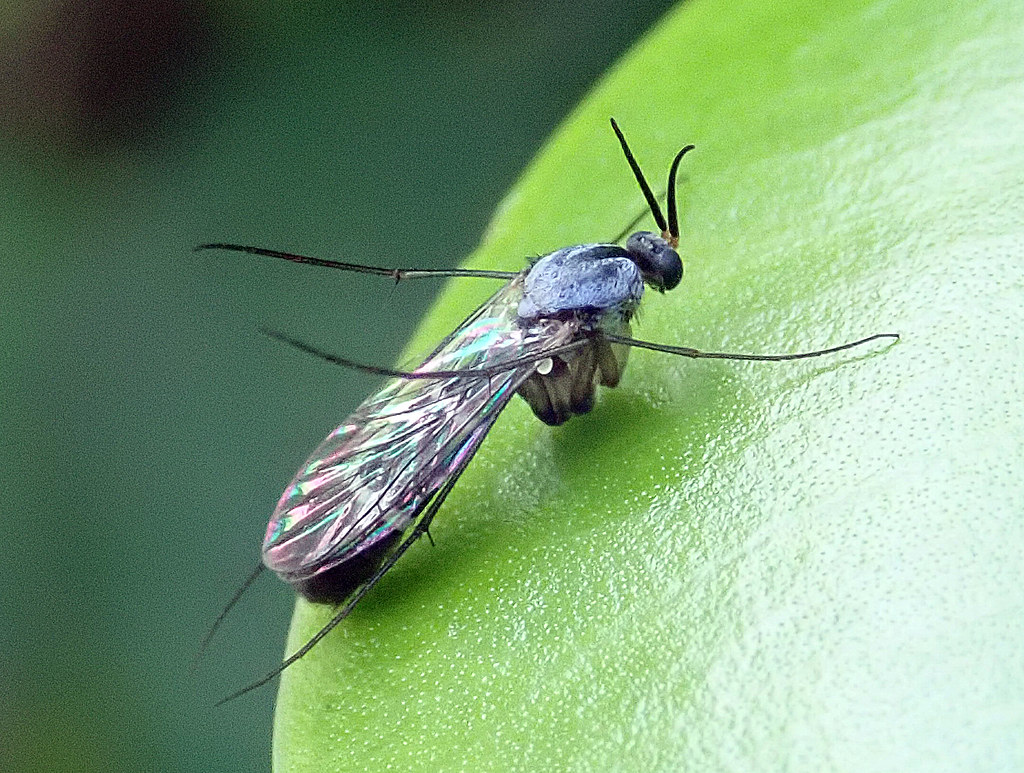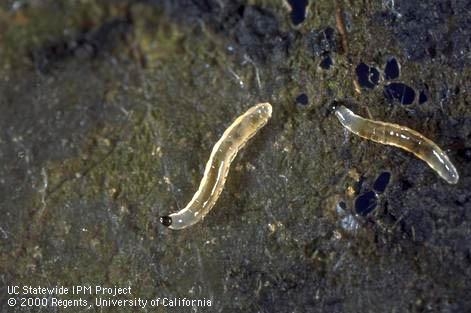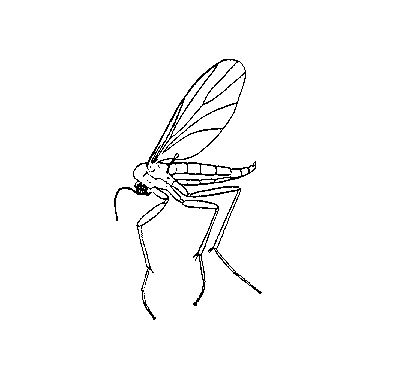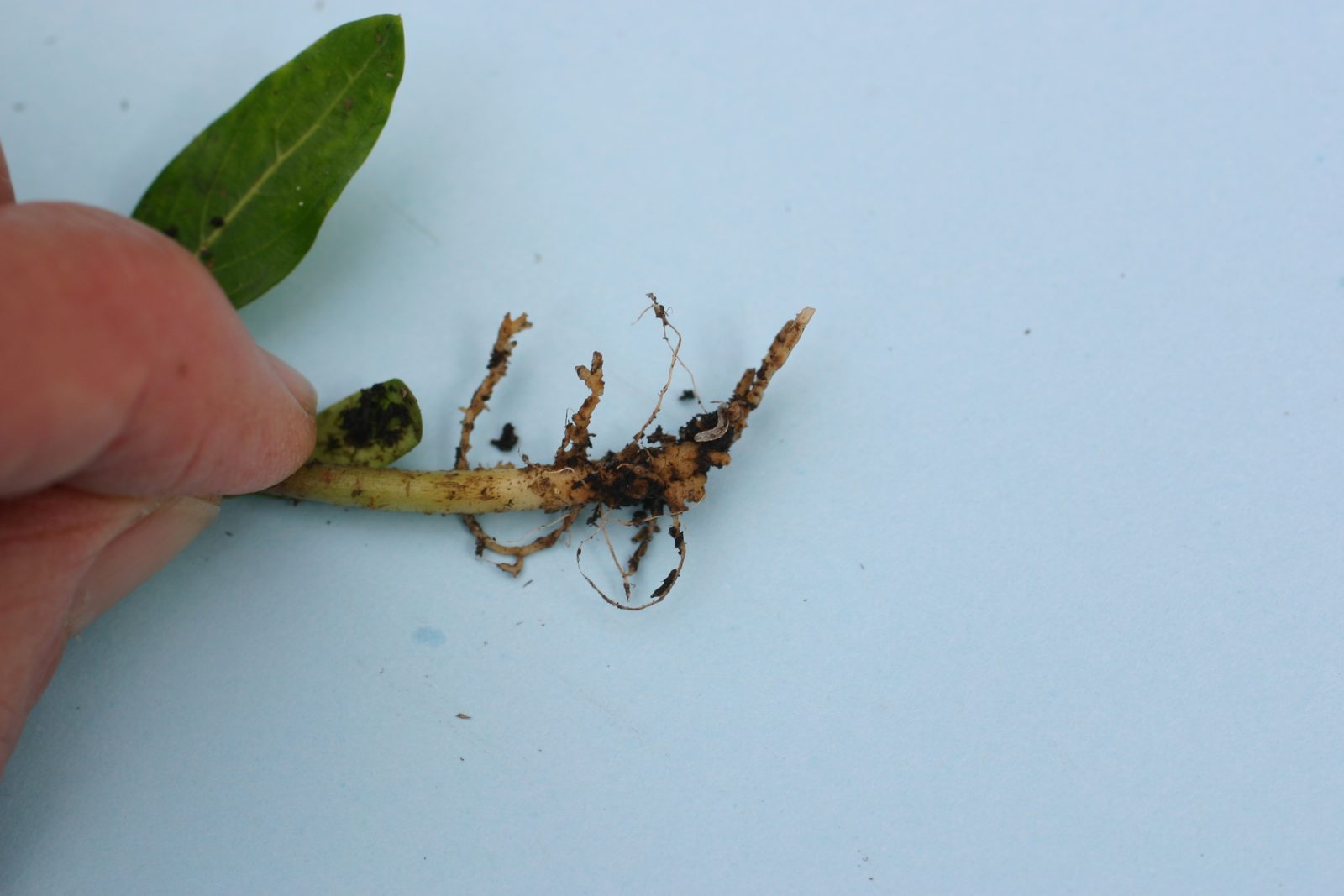


FUNGUS GNATS – (Sciaroidea.)

Often mistaken for the fruit fly the fungus gnat is a bothersome bug that can cause extensive root damage. The adult female lives about 1 week and in that week can lay 200 eggs. Their entire lifespan is only 28 days so unchecked the numbers can get alarmingly high in a very short period of time. Whilst the adult can be a nuisance it doesn’t actually harm the plants itself, it’s the larvae that does the damage. Primarily feeding on the fungus in soil once that source is depleted, they quickly move onto the roots. Chewing holes into the roots causes major problems for the plant, severely curtailing its ability to uptake water and nutrients. In vast numbers these microscopic larvae can actually kill plants relatively quickly..
Preferring moist soil these bugs can be an indication of over-watering. However, like most invasive problem pests they are adaptable and hardy. Some recommendations are to allow the plant to dry out, or limit water. Yet this can also cause huge problems to the plant, especially those that like a moister environment, think poinsettia. Adding a layer of sand can also work but this runs the risk of compressing the soil or, if too deep, choking out the plant. Besides these remedies only work to somewhat control the problem, they do not eradicate it.


Happily, we have sourced some amazing products to eradicate and eliminate the pesky, destructive fungus gnat. The Hypoaspis miles is a small, brown, burrowing mite. It lives in the top half inch of soil and actively seeks out fungus gnat pupae and feasts on them. Its rapacious appetite and highly mobile behaviour make it excellent for curative applications of infestations. Its longevity (up to 70 days without food) makes it highly efficient at preventative treatments. Another option is the Steinernema feltiae. These microscopic nematodes search out fungus gnat larvae and burrow into them. Once inside they release symbiotic bacteria which quickly dispatches the fungus gnat larvae. Reproducing inside the dead insect the new infective, juvenile nematodes go in search of more prey. They require moist soil but tolerate a broad range of temperatures and are highly specialized and efficient in what they do.
These non-invasive species are 100% natural. Incredibly efficient. Safe to use on any crop including cannabis. Are completely safe for adults, children, pets and wildlife. Play well with other predator bugs, so if you also have an issue with another type of pest that can also be dealt with. Read on below to find the right predator for your crops needs.

(Image courtesy of L. Pundt, UConn)